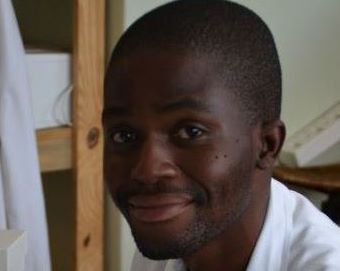Sipho Zulu of Umlazi was a Masters student with us, he says he did not envisage that he would one day become an academic but after pursuing his studies at UKZN and being exposed to various research projects he developed a keen interest and started working harder towards reaching this goal.
Zulu (28) of Umlazi says he did not envisage that he would one day become an academic but after pursuing his studies at UKZN and being exposed to various research projects he developed a keen interest and started working harder towards reaching this goal.
‘UKZN is one of the top ranked institutions nationally and in Africa so I wanted to be part of this leading institution. I was delighted when I enrolled as a student and am thrilled now by my appointment as an academic.
‘I am excited about the opportunity I have been given and am looking forward to contributing towards teaching and research to ensure that our institution realises its goal of being the Premier University of African Scholarship,’ said Zulu.
Zulu completed a Bachelor of Science degree in Microbiology and Genetics before pursing Honours in Genetics, Masters in Medical Sciences and is currently a PhD candidate in Public Health – all at UKZN.
Zulu, a Marie Currie Fellow from 2012 to 2014, has authored one publication and co-authored six journal articles published internationally.
In 2014, he spent five months at the Leiden University Medical Centre’s (LUMC) Parasite Molecular Diagnostic Laboratory in The Netherlands.
He has presented papers at the Public Health Association of South Africa (PHASA) Conference, the European Society of Clinical Microbiology and Infectious Diseases in London in 2012, and the European Congress on Tropical Medicine and International Health in Copenhagen in 2013.
Zulu’s research interests are in parasitology and parasite diagnostics as well as parasite co-infections, in addition to factors which cause and affect the disease distributions.
Zulu said what made him passionate about his work were the possibilities that researchers can bring about change to communities and witness the lives of affected communities change for the better through knowledge empowerment and having interventions implemented.
His family has supported him from the beginning and continues to do so, ‘I know I can always count on their support.

